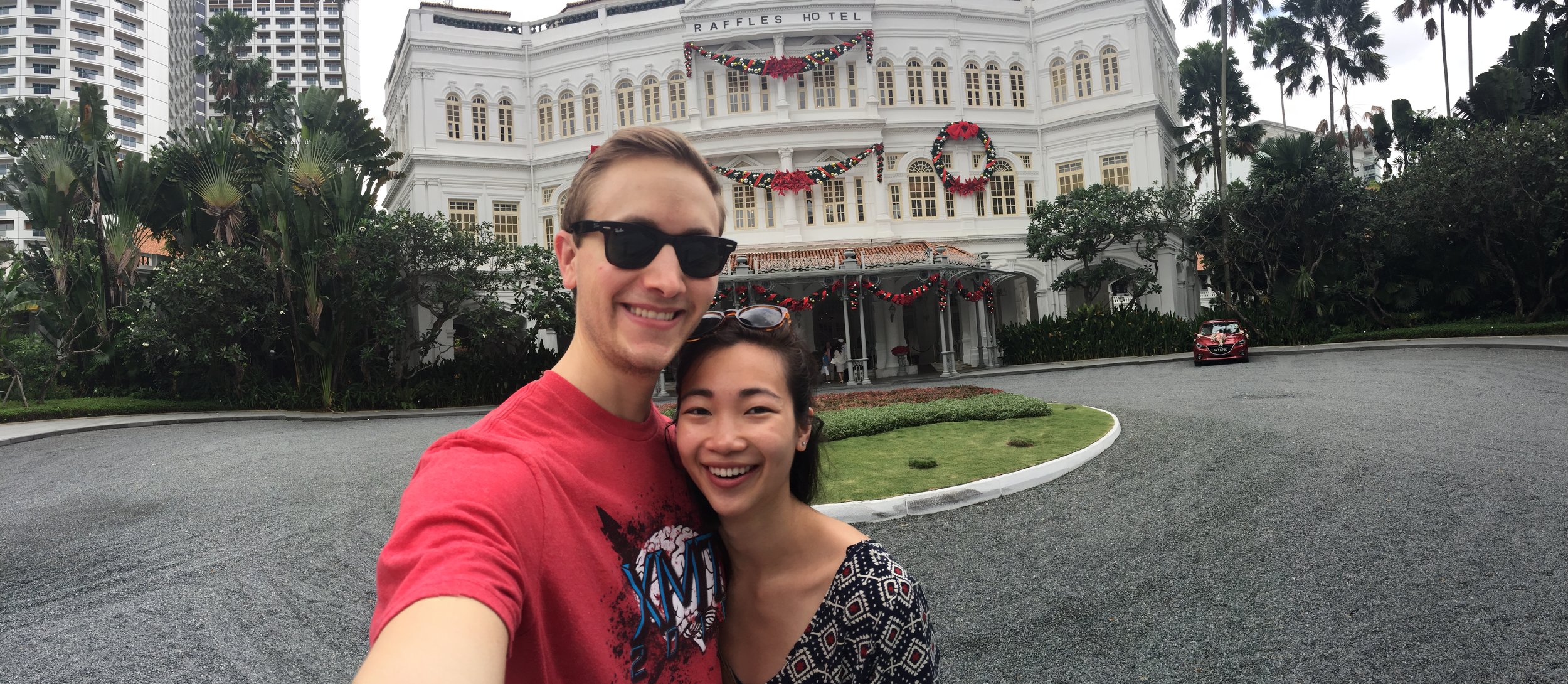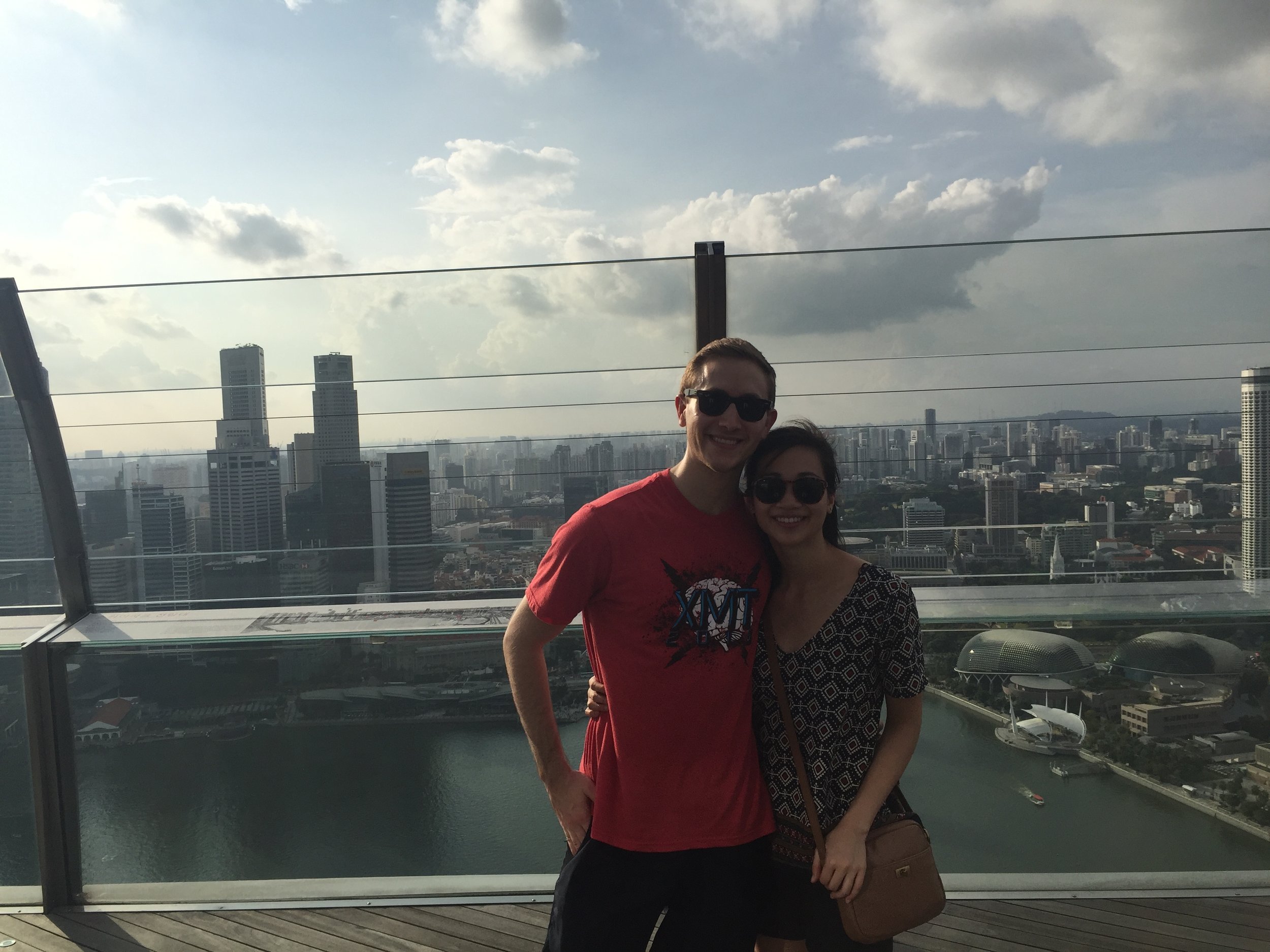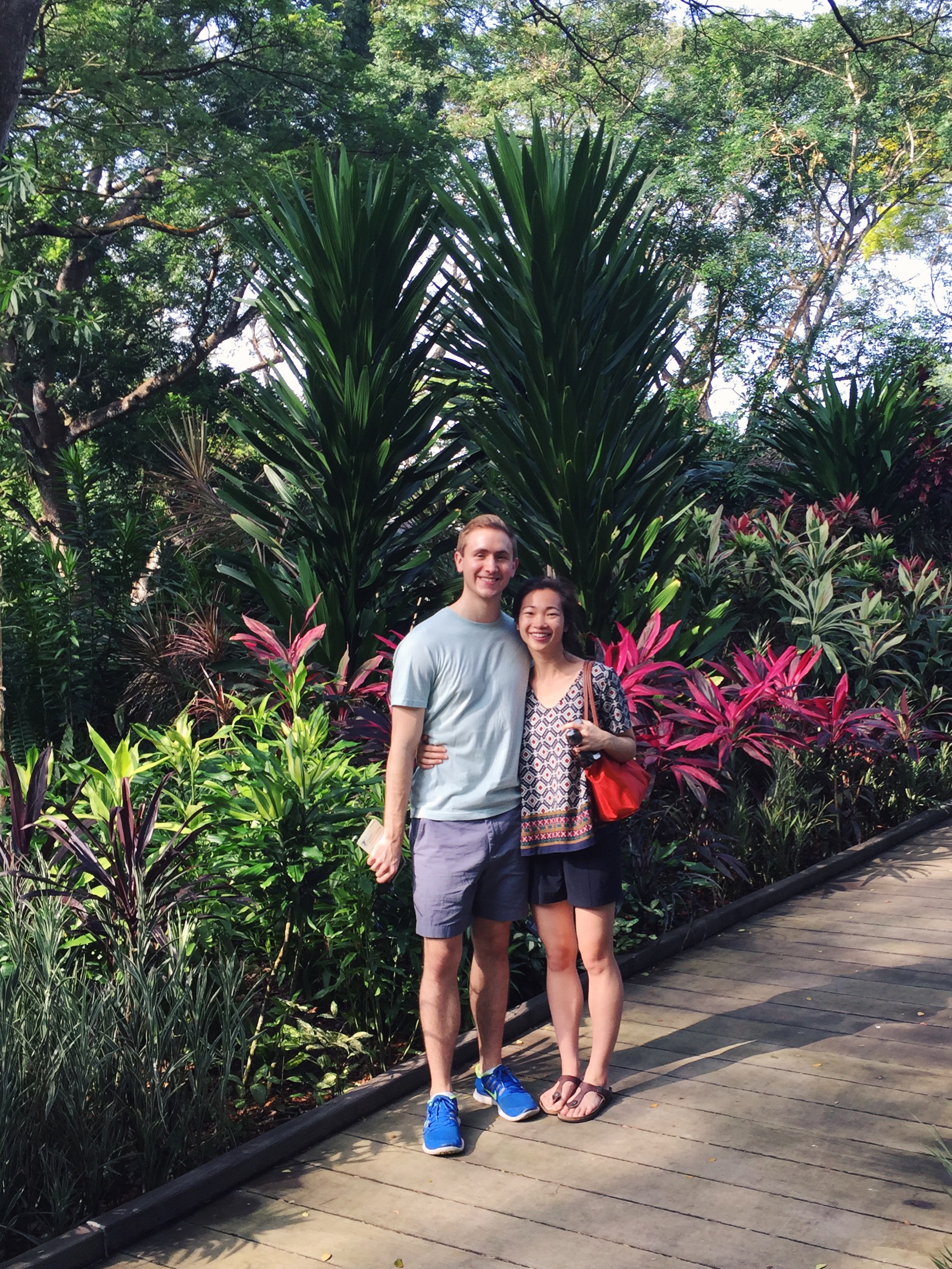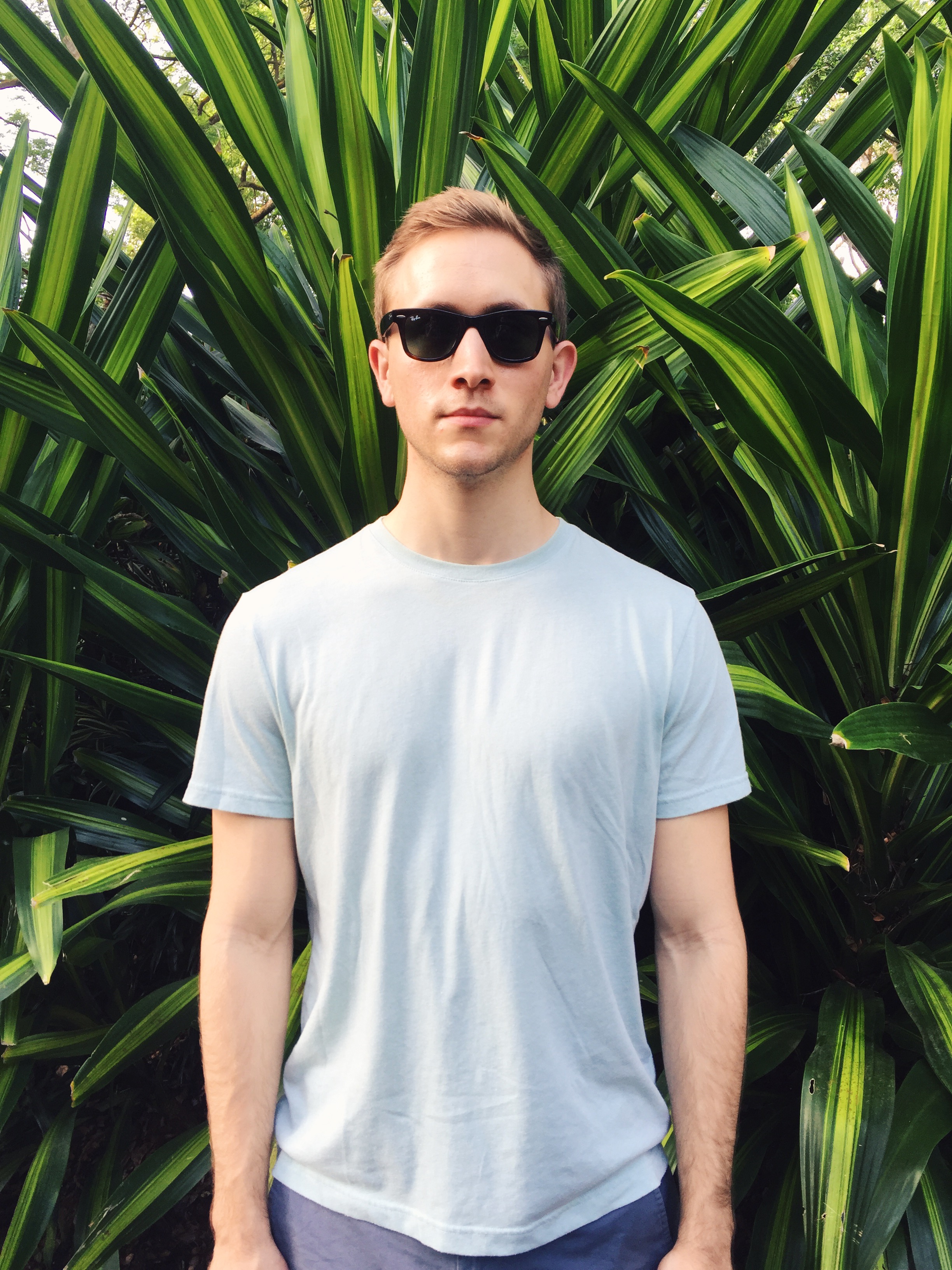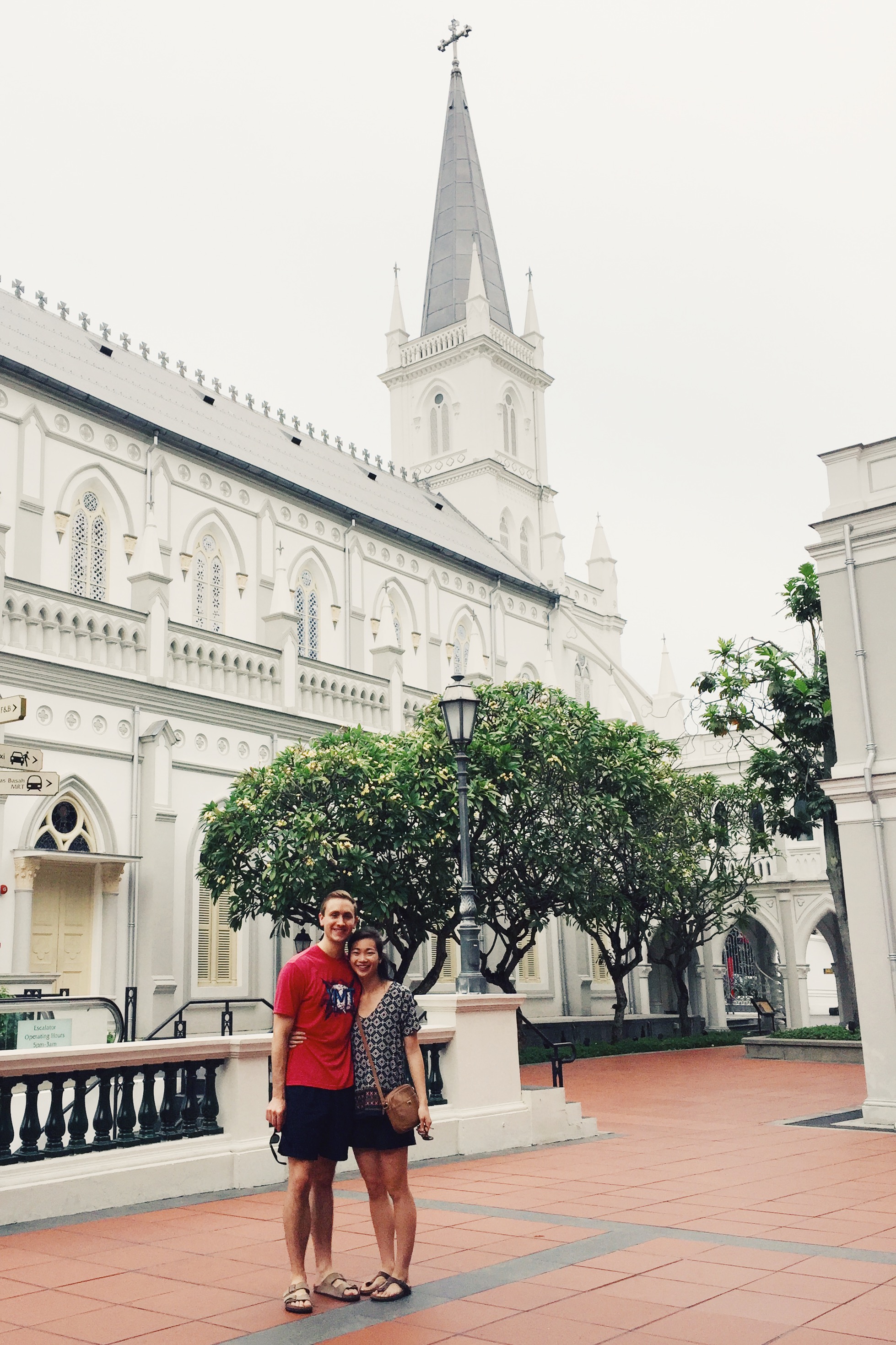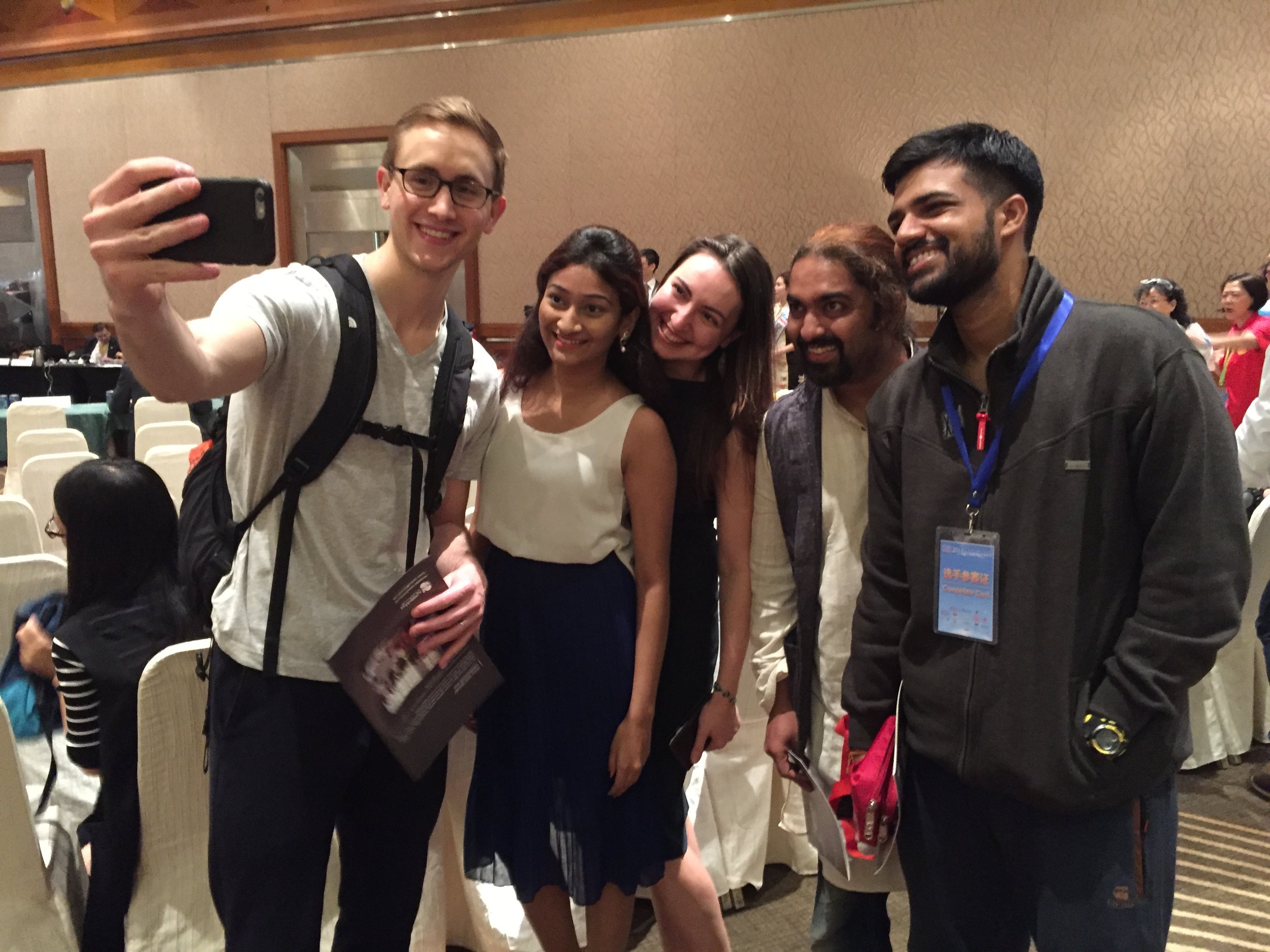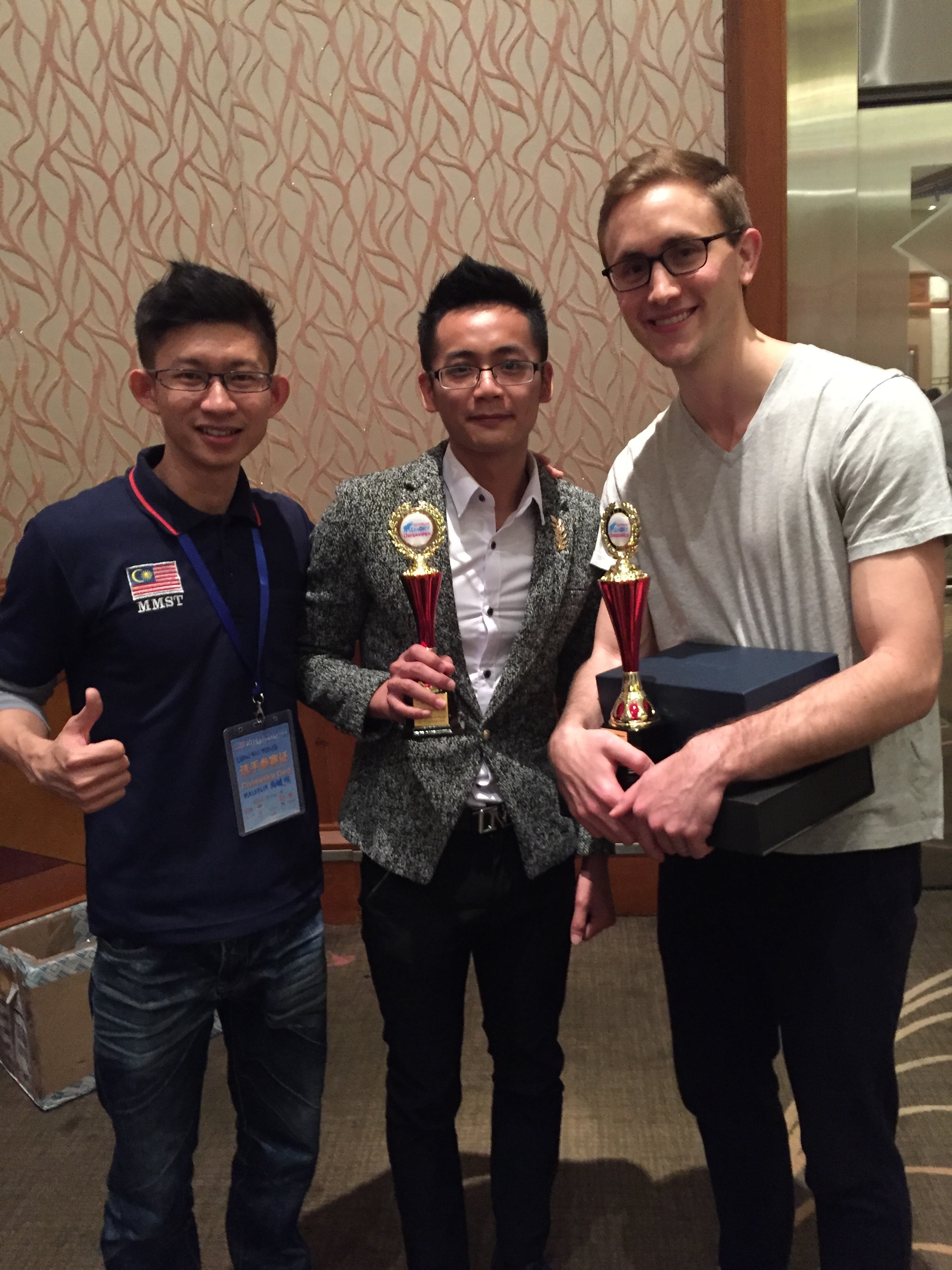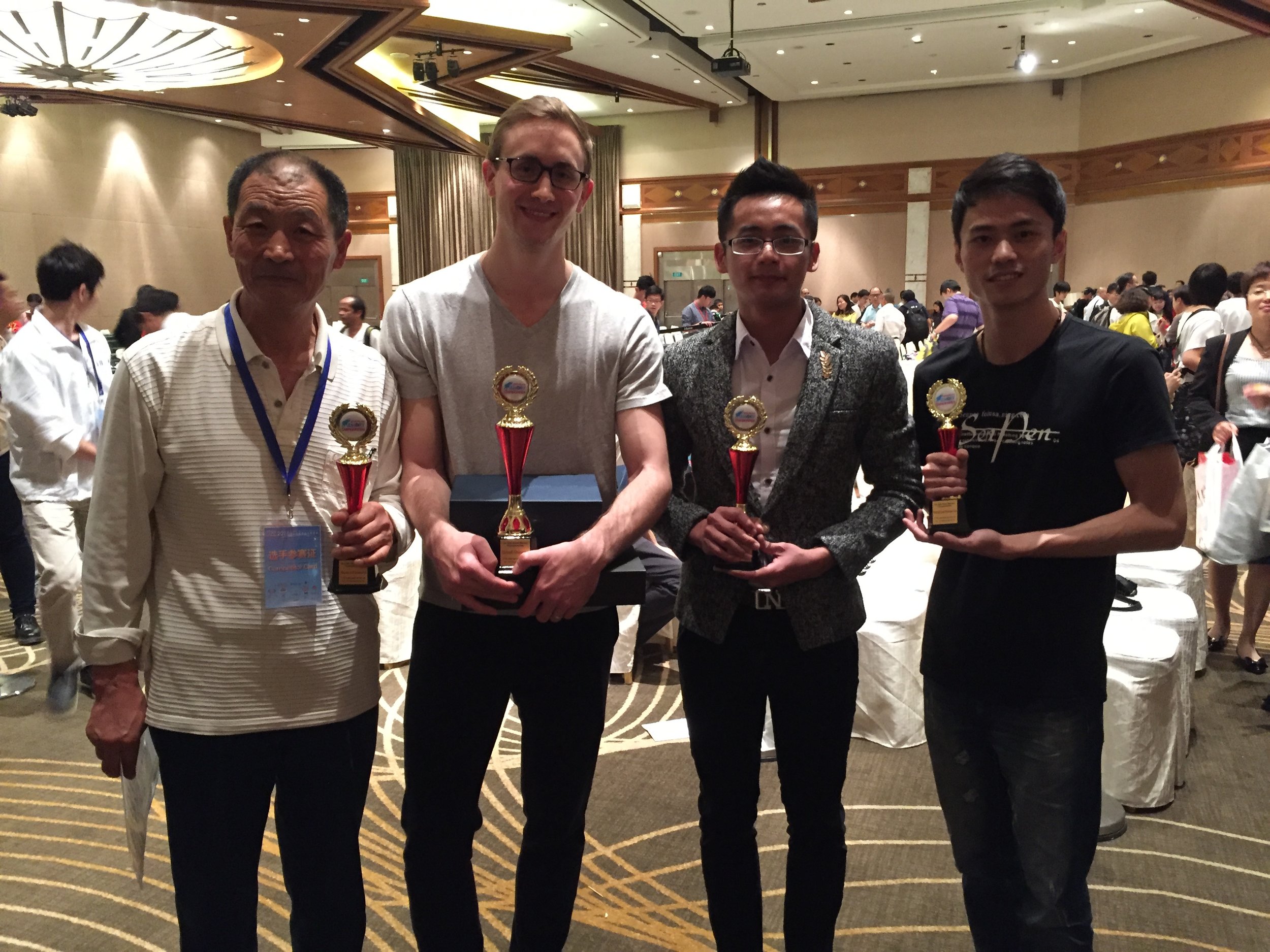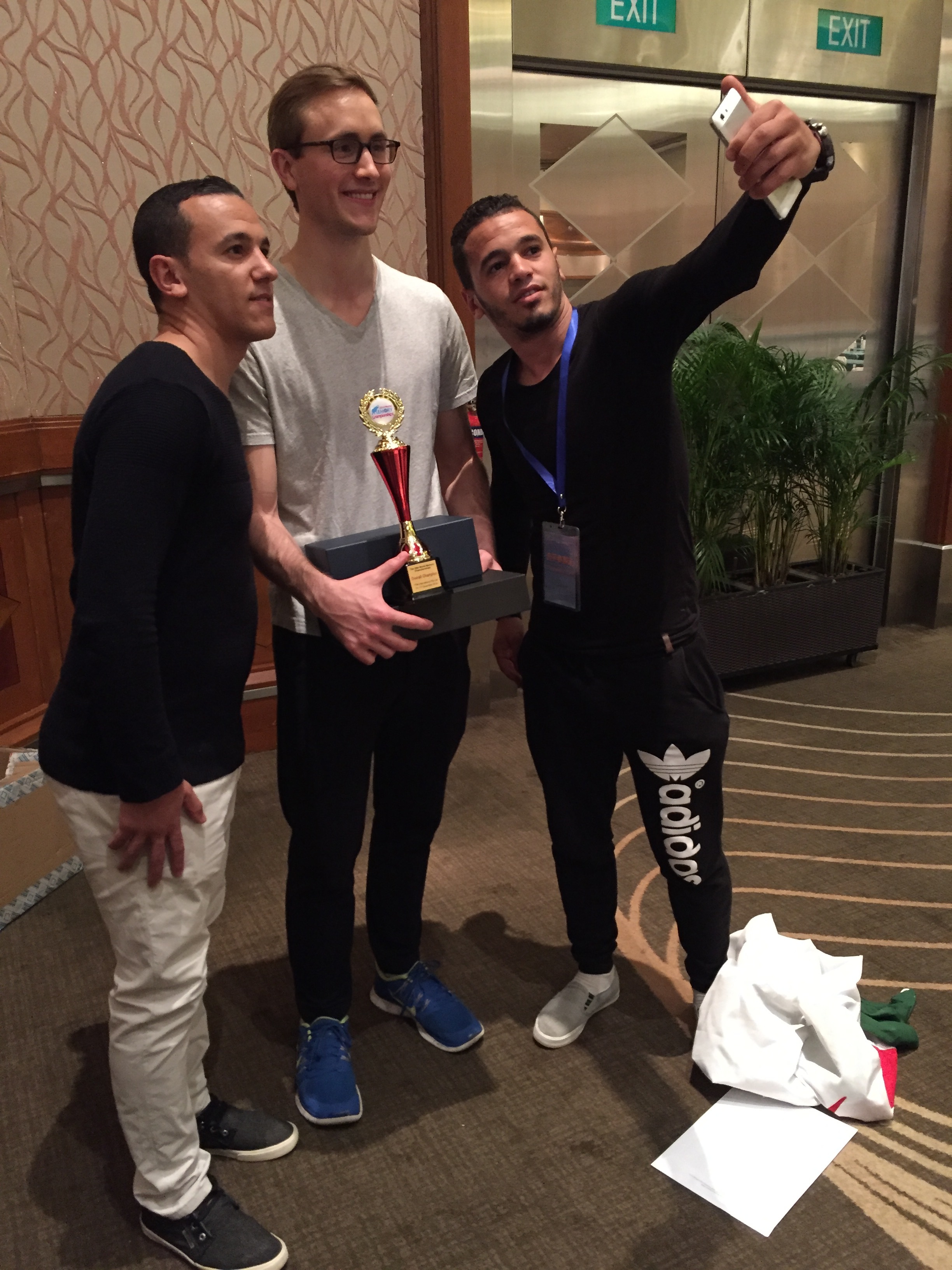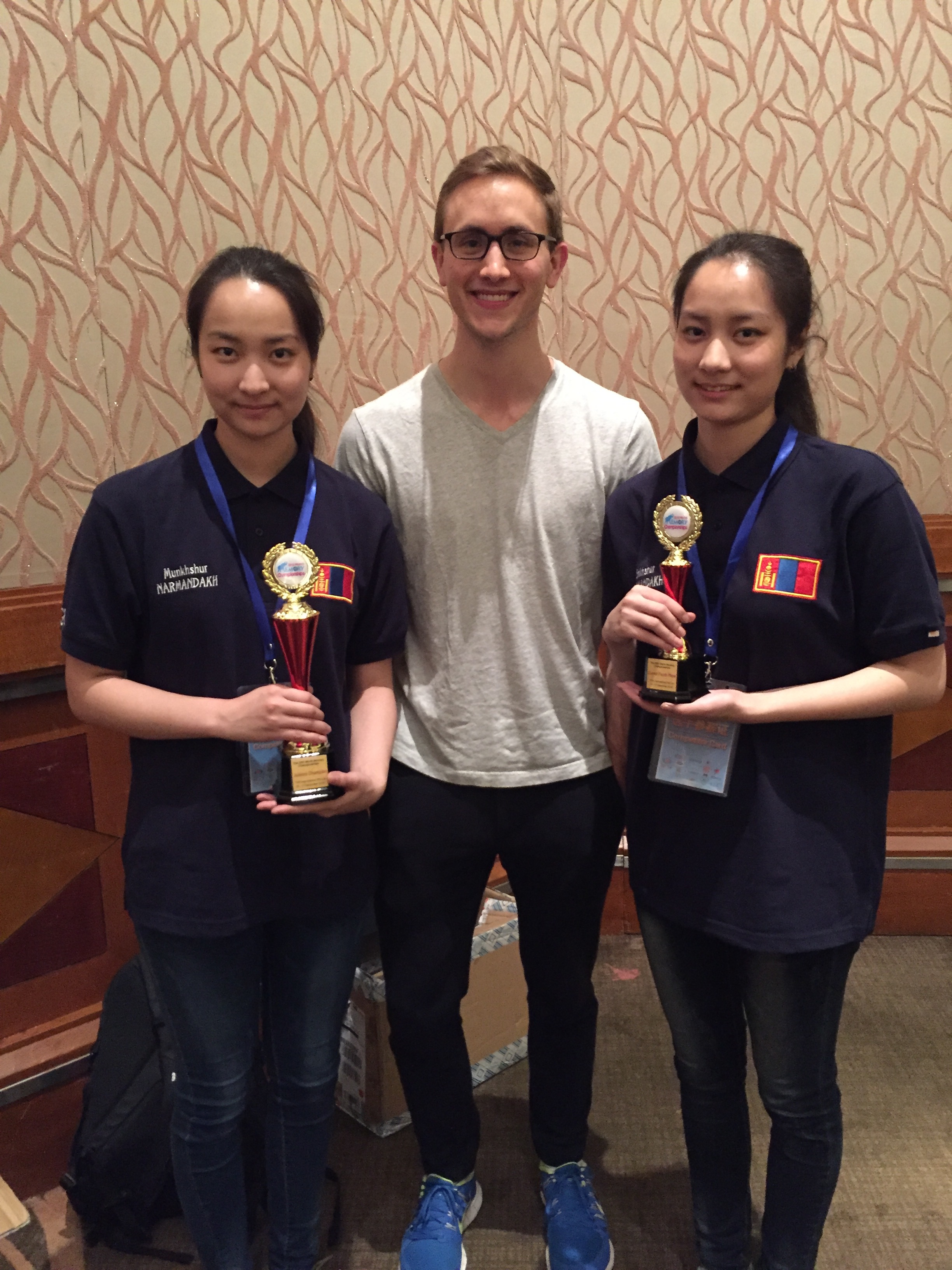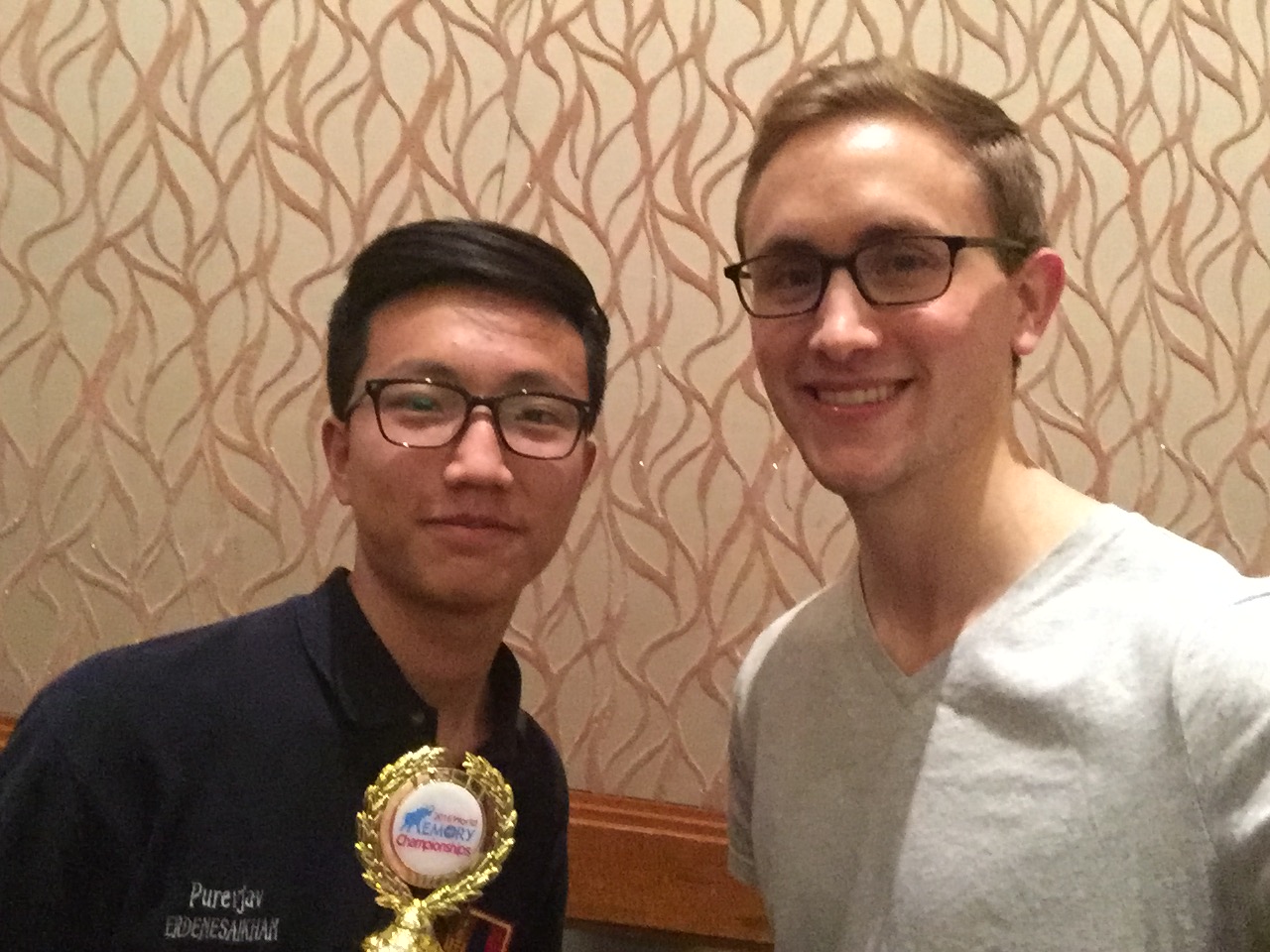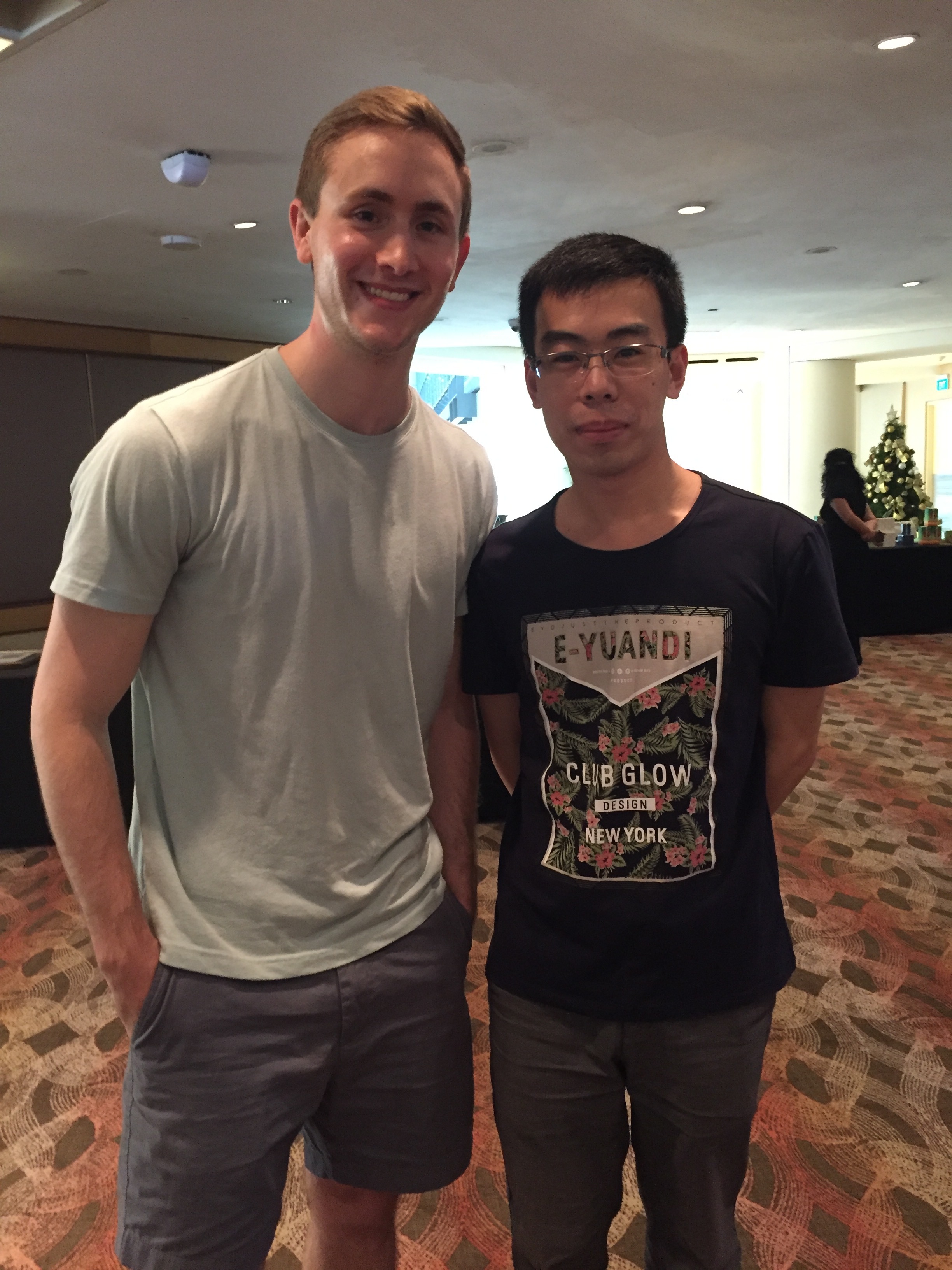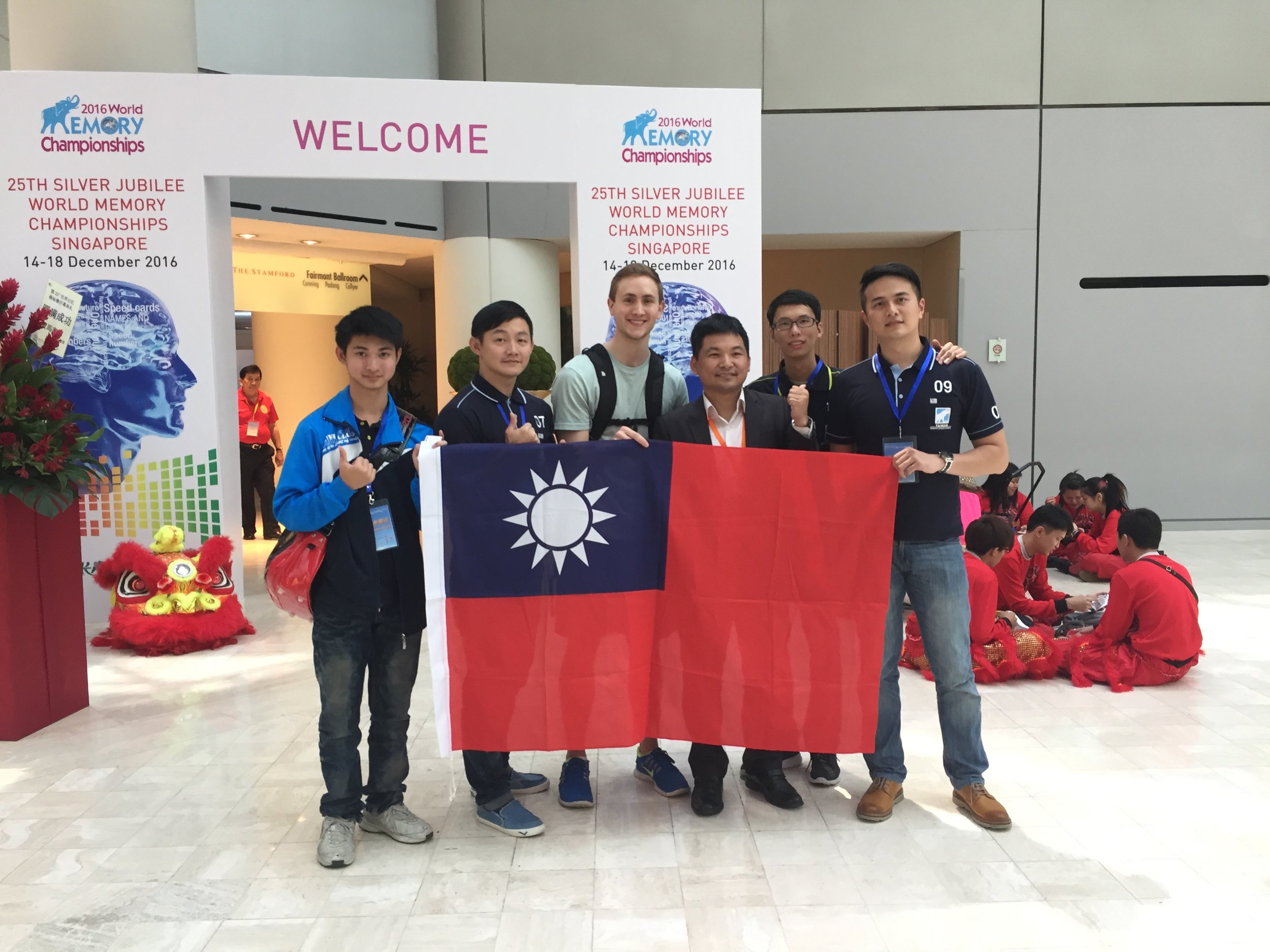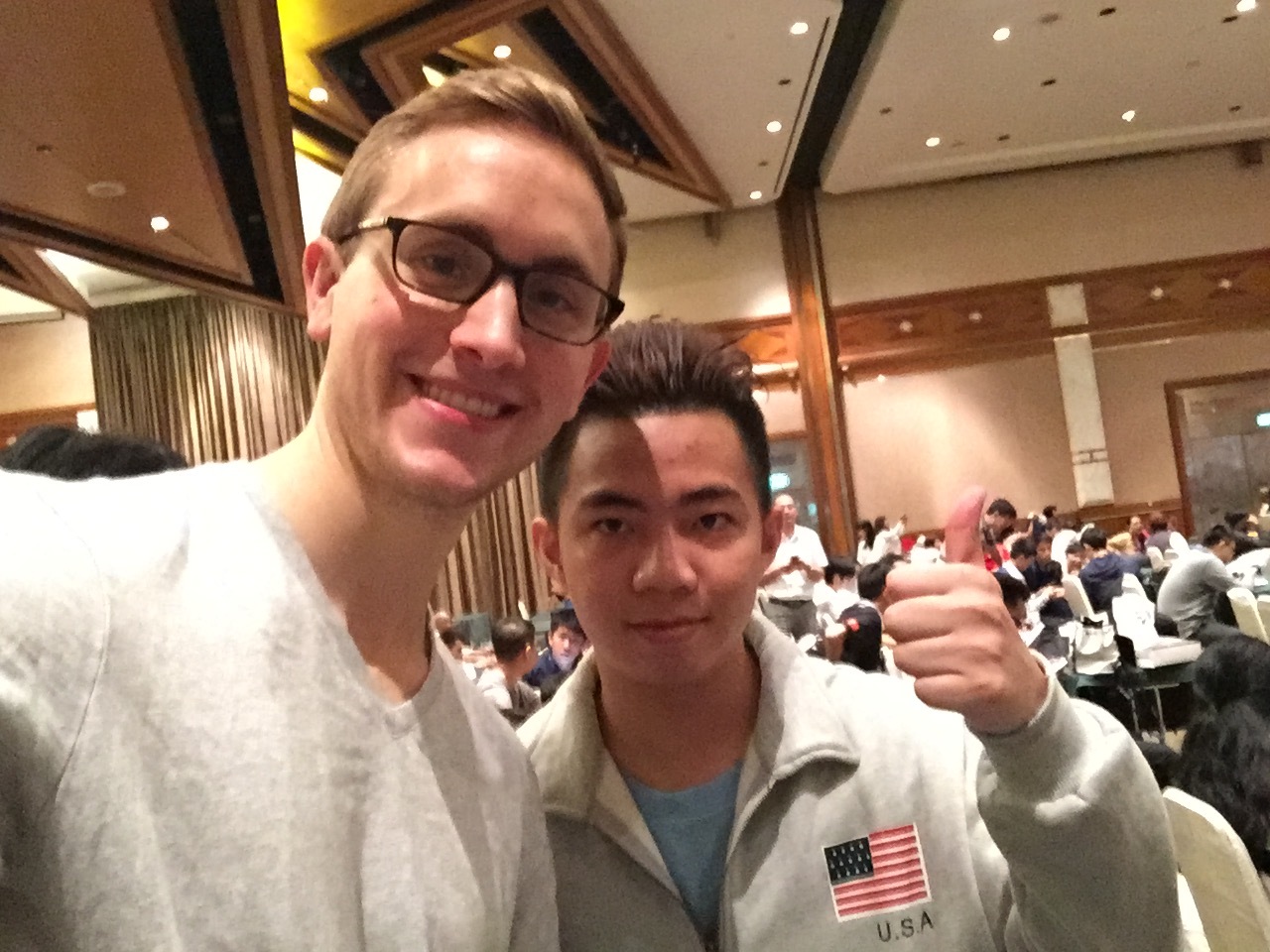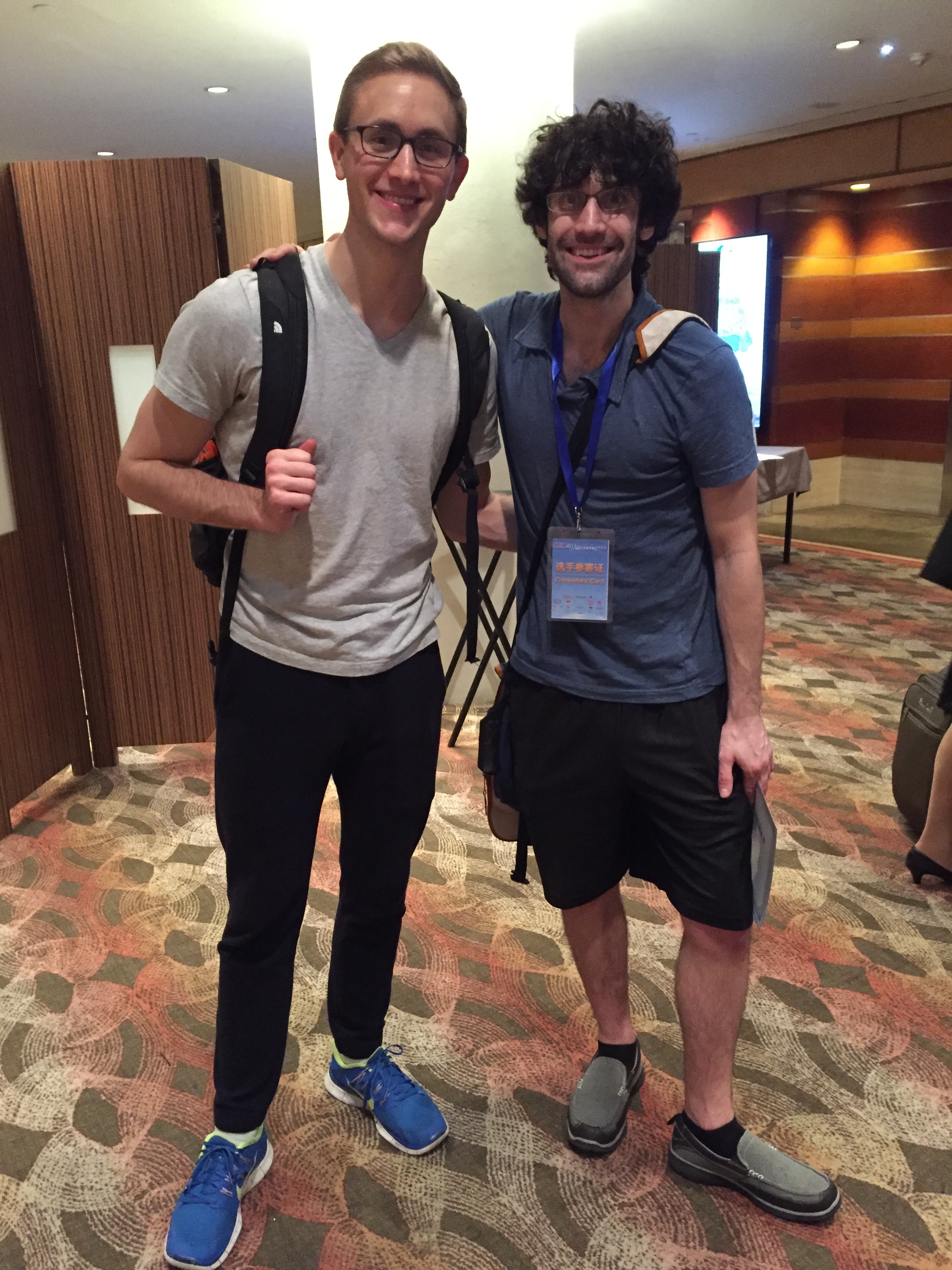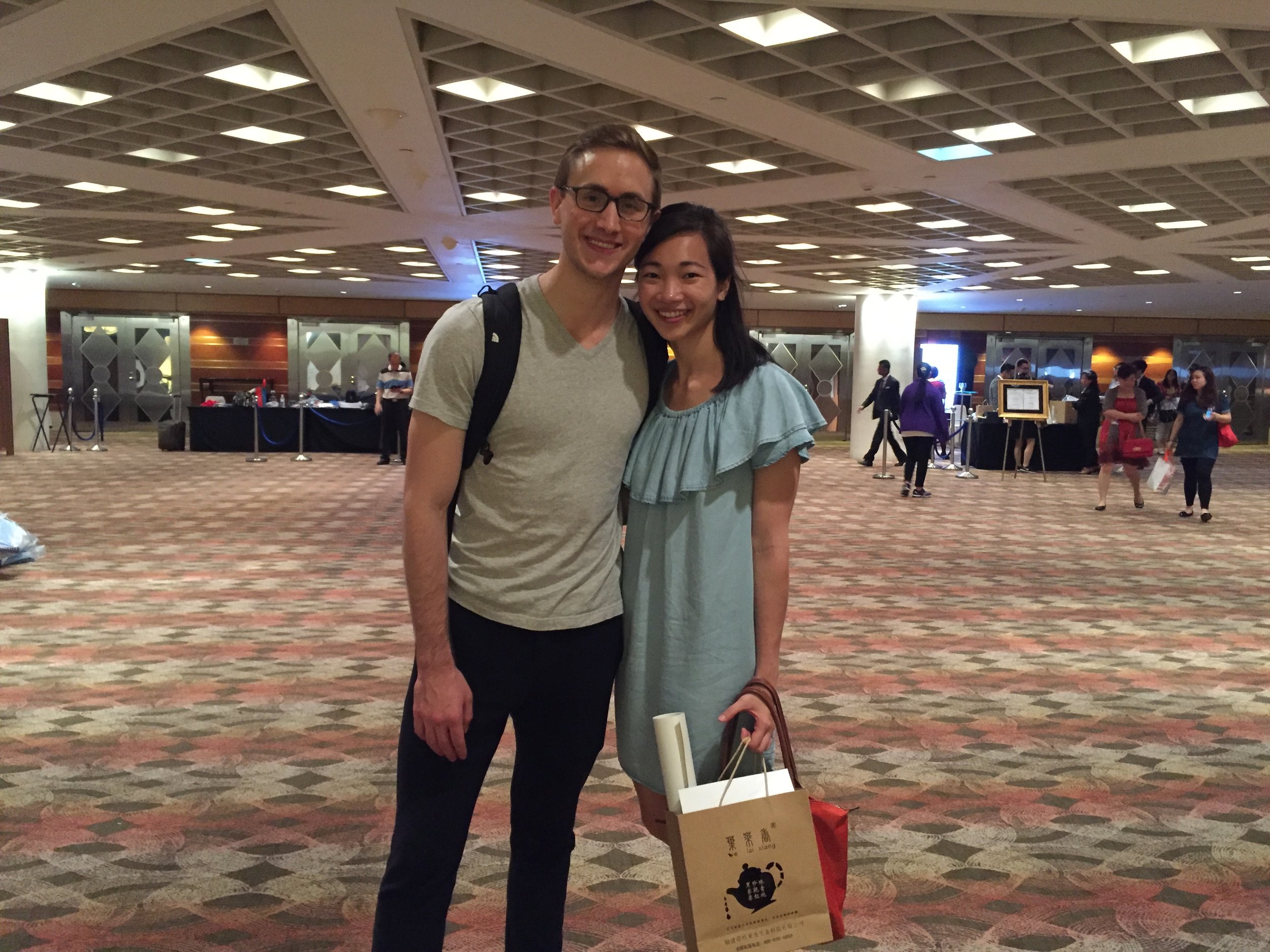It’s that time of year again. Two weeks ago, Cathy and I stuffed our bags and hopped in an airplane for 25+ hours for the annual World Memory Championship. After last year’s event in Chengdu, China, the organizers bumped the venue to Singapore, which I found to be a truly awesome place. Buildings of all colors and architectural styles, greenery everywhere, clean streets, and crazy vistas around every corner. We had a blast just walking around. The one downside: the unrelenting 80o humidity.
As usual, we arrived a few days early to acclimate. Some pre-competition highlights included Little India, Chinatown, Fullerton Bay (look it up; it’s nuts), and the botanic gardens, the latter two of which may now be in my top five favorite places on Earth.
Fullerton Bay
Botanic Gardens
The event itself, like last year, was held in the convention hall of a hotel: “The Fairmont.” The lighting could’ve been better, but all things considered it was a solid, swanky place to sit memorizing.
Just outside the competition hall
Having won last year (barely) and made improvements throughout the year, I came in feeling confident. Nervous, as always, but confident. That was what I was telling myself, anyway. The mind has a funny way of playing tricks on itself coming into an event like this. Even at the level I’ve managed to reach, second-guessing myself—the voice in my ear saying “What if you’re missing something?” or “What if you flub this event?”—still happens uncomfortably often. I’ve found maintaining confidence in my preparation to be essential.
Per the IAM boycott, many of the world’s best—#2 Johannes Mallow, #4 Simon Reinhard, to name a few—didn’t come. I’d ultimately decided to make the trip, for reasons I mentioned in my last post. The inimitable Marwin Wallonius, world #3 and the man who’d led last year’s competition until the final event, had as well. We hadn’t corresponded much. Apart from knowing his results at the Swedish Open, I’d heard nothing about his training. With some luck in Marwin’s best events—binary and abstract images, the ones he used last year to pull away from the pack—I could stay competitive going into speed cards. I knew it would be a tough fight. Marwin felt like my main rival, but other people on my mind included Prateek Yadav (4x Indian champion; had yet to compete at a WMC), China’s best (Shi Binbin and Huang Shenghua), and Purevjav Erdenesaikhan (Mongolian champion).
Day 1: Names, Binary, Hour Numbers
I walked out of Day 1 feeling crummy, but thankfully my scores came out better than I’d expected. After doing 120 names in London, I ended up with an acceptable 112. Memorization felt sluggish and the names hard, but 112 was enough for third. Sri Vyshnavi Yarlagadda did 140 and Prateek 127 to take first and second.
My mediocre feeling stemmed largely from a transparency issue that occurred during binary. On page five, the format changed subtly, and I was forced to shift my transparency down the page as I memorized. As you might expect, turning a page and finding your transparency no longer fits is an “oh sh**” moment. It agitated me for the rest of the day. Surprisingly, I’d scored 4,125, a hair under the 4,155 I’d done at Memoriad. To my utter shock, Marwin’s name was nowhere to be found on the leaderboard. Shijir, a Mongolian who’d won the event at Memoriad, took first with 4,635. I later learned that Marwin had had paper issues of his own; his final pages hadn’t contained the proper number of rows. As I understand it, their solution had been to scratch out the incorrect rows, but they then began the event immediately, giving him little time to adjust. That must have been horribly frustrating.
My hour numbers started well, but my second review took inexplicably long, and I memorized a few hundred digits fewer than intended. I finished with 2,811, well off my score of 3,115 at Memoriad and 3,029 from last year. Disappointing. After the binary debacle, Marwin found his footing again, taking first with 2,860.
Day 2: Abstract Images, Speed Numbers, Historic Dates, Hour Cards
Photo credit: Idriz Zogaj
Now in the lead by a few hundred points—no doubt due in part to Marwin’s binary issue—I entered Day 2 feeling rejuvenated. Two marathons down, the fun stuff lay ahead!
Even though it’s pointless and silly, I like Abstract Images, although probably more because of the format and lenient scoring than the images themselves (personally, I’m hoping the IAM replaces it with a “concrete” images version of the same format). I’d made marginal improvements through the year, but not the strides I’d been hoping for. Knowing it was a dead-man-walking event hadn’t helped my motivation. I finished with 520, better than my 505 from 2015. Happy with that. Again, Marwin’s name wasn’t in the top three! I was stunned. The Chinese had locked this event down apparently, taking all three spots. Su Zehe—I’d never heard of him, but we’ll get back to him later—scored 622, nearly breaking Emma Andersson’s record of 623.
Heartened by an apparently not-so-bad first day and a solid abstract, I settled into a groove and felt much better for the remainder of the weekend. I scored 121 in dates, a competition best, and 520 in speed numbers, equaling my competition best. I followed these with a score of 31 decks 14 cards in hour cards, squeaking over Shi Binbin’s world record of 31 decks from last year. Unfortunately, I’m assuming the IAM won’t recognize this score, but after an improved Day 2 I was feeling good nonetheless!
Day 3: Words, Spoken Numbers, Speed Cards
My Day 2 scores afforded me a comfortable 600-point lead heading into the third day. Marwin—who’d posted solid scores but whose cumulative score was hurting from less-than-his-best finishes in binary and abstract—had slipped to third. Su Zehe had claimed the second spot.
I’ve said it before, and I’ll say it again: the final three events of traditional memory competitions, as fun as they are, wreak havoc on the nerves. Harsh scoring in words and sudden-death scoring in spoken and speed cards make for a nail-biting finish. As great as the 600-point lead felt, it could all come crashing down with one too many missteps.
Words went smoothly—I ended up with 245, same as last year—which helped me settle down. As usual, my plan in spoken was to shoot for a “ladder”: start with a safe score, then work progressively upward on the next two attempts. Miraculously, I nailed it. That doesn’t happen often. I hit 120, then 210, then 301, which marks the first time I’ve exceeded 300, even in training. Those finishes were enough for second and first.
With some good fortune on my side, I’d stretched my lead on Su Zehe to over 1400. This news came with a flood of relief, as I could fail both speed cards attempts and still win (even the best speed cards scores don’t top 1200). A much different story from last year’s photo finish! Just to be sure, I recorded a safe time of 26 seconds on the first attempt, without mistakes. I went for broke on the second, clocking 18.9. Deck #2 contained a very unusual scenario. I usually read off the last 6-10 cards, muttering the images to myself and solidifying them after I’ve hit the timer. Feeling sluggish on this attempt, I’d rushed a bit too fast through these final 5 images, and not until after I’d slapped the Speedstack did I realize the same image had cropped up twice! A rare occurrence. Unfortunately, I’d been moving so sloppily I hadn’t stopped to notice which one was which (i.e. which was 5♢ 3♤ and which 5♤3♢, which both represent a green street sign in my system). A few minutes into recall, I managed to convince myself I hadn’t seen the same image twice at all, and ended up putting 3♢5♤ instead of 5♤3♢. An unfortunate mistake, but I’d won! The 26 had put me over 1500 points ahead of #2 Huang Shenghua, who’d jumped up and snatched it from Su Zehe, now in third.
After a tense week, it was all over. My final cumulative score came out to 8,647. In terms of points, this was only my third best competition of the year—the other two being the European and US Opens. WMCs are always more difficult to score highly in though, since the standards are higher. And given I’d scored over 500 points ahead of my 2015 score of 8,129 (adjusted down from 8,926 according to the new millennium standards), I was feeling good. No great speed cards to cap it off this time, but I’d become a two-time world memory champion! Time for some sleep.
Cathy and I had two more days to muck around Singapore, and we had a great time doing more of the same: walking around the bay (even going to the top of the ship building!) and the botanic garden, eating all sorts of foods, and spending time with some other competitors (e.g. the Taiwanese team). A great end to 2016. Looking forward to the new year!
